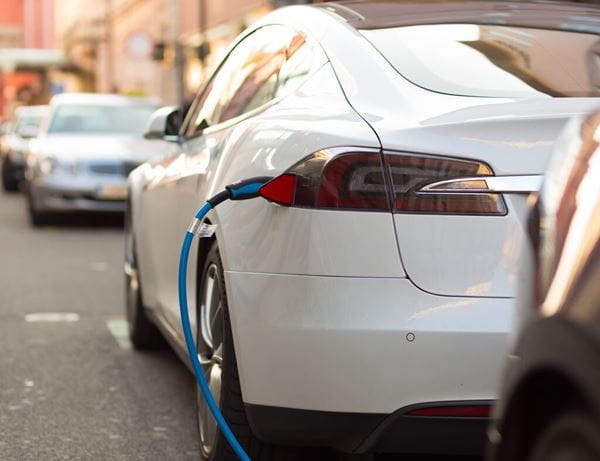
Delays To New Vehicle Deliveries
The UK’s new car market is under unprecedented pressure, and it’s affecting the cost and availability of new cars. Here’s how that might affect your order.
Why are new car prices and delivery times rising?
Already adapting to new technology, regulations and consumer habits, the automotive industry has faced a challenging start to the 2020s. Covid-19, conflict in Ukraine and the fastest inflation since the late 1970s have all affected the market for new cars, causing long delivery times and rising prices for customers – and those challenges are ongoing.
We’ve outlined the biggest bottlenecks below.
Challenge 1: Component Shortages
The automotive industry relies on meticulously constructed supply chains, and recent events have made them harder to maintain. Manufacturers have faced global shortages of semiconductor chips since 2021, followed by local lockdowns in China and conflict in Ukraine, both of which have disrupted the supply of other parts needed to build new vehicles.
Meanwhile, global demand for electric vehicles has inflated the cost of raw materials for their most expensive components. The value of lithium surged last year causing average battery prices to rise for the first time in a decade and, although these have fallen during 2023, they are still three times higher than they were back in 2021.
How might this affect my order?
Parts availability has affected the cost and delivery time for new vehicles. Some manufacturers have focused their supply semiconductors into popular models and equipment to keep production going, resulting in less choice and specifications changing between ordering and delivery. This could mean lease rates have to be recalculated.
The latest BVRLA half-year Industry Outlook Survey suggests supply is improving, with almost two thirds (59%) of leasing and rental companies reporting better sales than a year ago, but it will take time to catch up with demand. Although SMMT data shows the new car market recorded its eleventh consecutive month of year-on-year growth in June 2023, the baseline is a low 2022. Registrations were 26.2% lower than they were during the same period of pre-pandemic 2019 – that’s 337,525 fewer new cars.
Challenge 2: Interest rates
The Bank of England base rate, which influences interest on loans and savings, was cut from 5% to 0.5% following the 2007-2008 financial crisis and, until recently, it had stayed low.
However, soaring fuel and energy costs caused inflation to reach a 45-year high of 11.1% in October 2022, triggering the Bank of England to raise its base rate from 0.1% to 5.0% during the 18-month period to June 2023. The aim is to incentivise saving money and bring demand back in line with supply, curbing further inflation.
How might this affect my order?
The higher the base rate, the more expensive it becomes to borrow money – and that includes vehicle finance. Alongside rising transaction costs, the BVRLA says monthly rentals have almost doubled on some models and long lead times means rates can change between ordering and delivery.
This is influencing behaviour. SMMT data shows retail registrations were slightly down on 2022’s figures at the end of May, and manufacturer order books are ‘rightsizing’ faster than expected as deliveries catch up with demand.
Challenge 3: Energy costs
Europe is enduring a once-in-a-generation energy crisis. Wholesale gas prices surged during Autumn 2021 as supply struggled to keep pace with post-pandemic economic recovery. Sanctions on Russian oil and gas, which were imposed following its invasion of Ukraine, have exacerbated those shortages and inflated fuel and electricity prices even further.
Petrol and diesel prices at the pump have returned to November 2021 levels, having peaked at £2 per litre last summer, though that’s partly due to a 5p/litre reduction in fuel duty. Electricity has yet to follow suit and has doubled in price compared to two years ago, which impacts charging costs for plug-in hybrid and electric vehicles.
How might this affect my order?
Rising fuel and energy prices affect operating costs for all businesses. Those spiralling operating costs could be reflected higher prices for parts, vehicles and workshop time. However the biggest effects are on electric vehicles, where a spike in charging costs dramatically affects the business case for making the switch.
For example, a Kia Niro EV would cost 8.5p per mile to charge at a household covered by the Government’s Energy Price Guarantee, compared to 4.8p in 2021 (based on UK average prices at the time). At an Electric Highway rapid chargepoint (found at most motorway service areas) charging costs rise to 17.7p per mile for the same car, which is more expensive than a mid-size diesel (13.3p) or petrol (14.7p) car using current pump prices.
Challenge 4: Customer Support
With unprecedented challenges for vehicles, parts and funding, it’s become increasingly difficult to provide customers with the support they need. Customer service teams at many companies are facing significant challenges, and even market leaders are not currently hitting targets.
Our teams are being asked more questions and they are often more complicated, taking longer to resolve and may require unique solutions. As wider industry challenges are affecting our suppliers, they are letting us down more often than usual and creating problems that our teams are required to navigate.
Recruitment has become more challenging too, which means it’s taking longer to replace staff if they move on and others are picking up extra work too. Over half (56%) of leasing companies surveyed by the BVRLA said they were struggling to recruit new staff.
How might this affect my order?
It could take us longer to respond when you call, and finding a resolution to any problems may take longer as well. Online tools can be the quickest way for drivers to get the help they need which you can access here but please bear with us as we work on ways to improve the situation.

.jpg?rev=3adbd558867c4d92bf9f22752f12a09c&mw=600)



